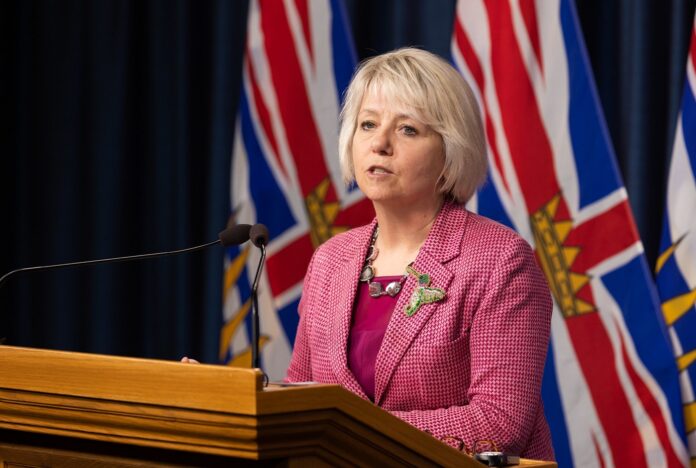DR. Bonnie Henry, Provincial Health Officer, on Thursday said that the BC Centre for Disease and Control is aware of six reports of influenza-associated deaths among children and youth in B.C. this season, with investigations ongoing.
She added: “My thoughts are with families and communities impacted by the loss of a loved one.”
Henry pointed out: “Early findings indicate some of the children experienced secondary bacterial infections contributing to severe illness, which can be a complication of influenza.
“It is important to know that death associated with influenza in previously healthy children continues to be rare. Public-health officials are monitoring the situation closely, and we urge everyone to do their part by taking steps to protect yourself, your children and loved ones against the flu.
“The children who died included one who was younger than five years old, three who were between five and nine, and two adolescents who were between 15 and 19. Death associated with influenza in previously healthy children is a tragic, but rare event and is especially rare in school-age children and teens.”
Henry added: “This is an unusual season with unusual characteristics, including an early and intense surge in cases. With this unusual pattern, enhanced surveillance has been implemented that includes reporting of pediatric influenza-related deaths to public-health officials. As the information is confirmed, updates on pediatric influenza-related deaths will be posted weekly as part of the respiratory surveillance summaries on the BCCDC website.
“You can take measures to prevent influenza and to treat those at higher risk of severe complications. Vaccination remains our best defence. Vaccination against influenza is available to all children six months and older in B.C. This is particularly important for children at highest individual risk of severe outcomes, including those with chronic medical conditions, those who need to take Aspirin or ASA for long periods of time, children who are very obese, infants and toddlers.
“While children typically have the highest respiratory-virus infection rates, most children with influenza and other respiratory viruses typically recover safely at home without the need for medical intervention. For children at high risk of severe complications, parents should consider talking to their care provider about early access to an anti-viral drug called oseltamivir (Tamiflu), which is most effective against influenza if started within 12 hours, and ideally not later than 48 hours after illness onset.
“Parents of all children should seek care if your child experiences difficulty breathing, or if your child’s fever goes away and comes back or persists longer than five days. This may indicate a possible bacterial infection.
“With multiple respiratory illnesses circulating and an early start to influenza season, everyone needs to take preventative measures. This means staying home if you’re sick, frequently washing your hands and following proper respiratory etiquette, such as covering your coughs, properly disposing of tissues and wearing a mask when appropriate.”
Learn More:
To view the weekly pediatric influenza-related deaths, visit:
http://www.bccdc.ca/health-
To learn more about when to take children to the emergency department, visit:
http://www.bcchildrens.ca/
To learn more about the influenza vaccines, visit:
https://www2.gov.bc.ca/gov/
and: https://immunizebc.ca/













